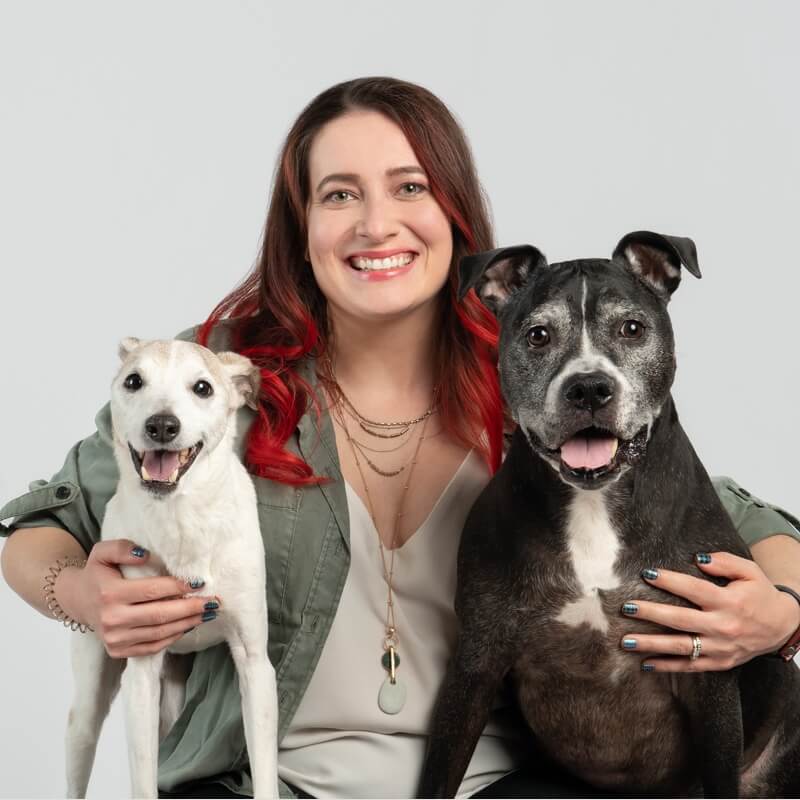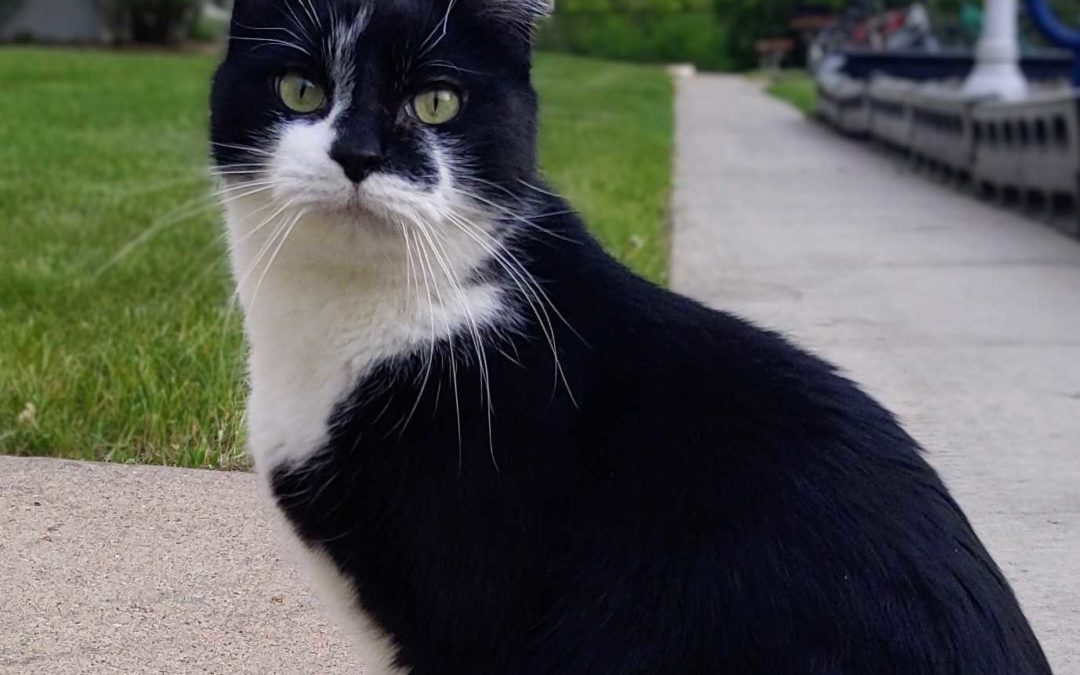St. Francis Construction Project Beginning in September
Pardon our mess! We are preparing for a big construction project at St. Francis Animal Hospital. To better serve our clients and patients, we will be adding more exam room space and expanding our treatment room. This project will last about three months. During construction, we will be working in a smaller-than-normal space. We will be shifting some appointments to our Integrative Services facility (located in the strip mall just west of the main St. Francis building at 1235 Larpenteur Ave W) and will likely need to be a little creative with how and where we see patients as we adjust to the day-to-day changes during construction.
We appreciate all of your understanding and flexibility as we embark on this new adventure, and we look forward to having an even better facility to care for you and your pets!
Frontline Gold Discontinued
Frontline Gold is a topical flea and tick preventative medication. The manufacturer has discontinued production of this product. We still have a small amount of Frontline Gold on hand, so please reach out if you would like to purchase any of the remaining stock that we have. For those who would like to continue utilizing a Frontline product, we recommend purchasing Frontline Plus. Frontline Plus is the most commonly counterfeited medications, so be sure you are purchasing from a trustworthy source such as our online pharmacy rather than over-the-counter.
Choosing A Pet Food
Walking down the pet food aisle can be an overwhelming experience when you are trying to choose a food for your pet. Brands, flavors, styles, and forms of food are all factors to consider when you are deciding what to feed your pet. As veterinarians, we have a few parameters that we recommend you check for when you are making a choice of what to feed your cat or dog.
1) Look for an AAFCO feeding statement. The Association of Animal Feed Control Officials (AAFCO) is responsible for determining standards that pet foods need to meet in order to satisfy all of their nutritional requirements. You should be able to find a statement on the bag that states that the food either underwent feeding trials to ensure they provide complete and balanced nutrition or that they were formulated to meet the nutritional standards established by AAFCO. Feeding trials are a more stringent means of assessing a diet. If a food does not have an AAFCO statement, or if the food states that it has not been formulated to meet AAFCO standards, we would recommend avoiding it.
2) Check to see whether the company has a board-certified veterinary nutritionist on staff. While AAFCO sets the minimum standards for formulating pet foods, veterinary nutritionists have advanced training in how foods are sourced and processed, as well as how foods can be formulated to benefit animal health above and beyond the minimum standards (such as the addition of prebiotics or probiotics).
3) What sorts of quality controls are performed on the food? Pet foods should be tested to make sure they are providing the right nutrients in the correct proportions and to ensure they are not contaminated with bacteria. A reliable pet food company should be willing and able to provide you with information about their quality control practices.
4) Avoid grain-free diets unless your pet has a confirmed sensitivity to grains. While the specific cause is still being determined, grain-free diets have been linked to the development of a type of heart disease called dilated cardiomyopathy (DCM) in both dogs and cats. The vast majority of dogs and cats tolerate grains in their diets well, and so we would recommend sticking with a grain-inclusive food unless your pet has a known grain allergy.
5) Make sure the diet is appropriate for your pet’s age, breed, and species. Puppies and kittens should be eating a diet formulated for growing animals. Large and giant breed dogs have specialized nutritional requirements, particularly while they are young, and should be fed a diet formulated for large breed dogs. Dogs are carnivorous omnivores, meaning that while their bodies are designed to eat mostly meat, they can meet all of their nutritional needs through a well-formulated vegetarian food. Cats, however, are obligate carnivores, meaning they need to have a meat-based diet in order to survive. While there are some vegetarian and vegan cat foods on the market, we strongly advise against feeding these types of diets to cats.
6) Take medical conditions into consideration. Many chronic illnesses, such as inflammatory bowel disease, kidney disease, obesity, and arthritis, can be managed in part by feeding a therapeutic diet. Ask your veterinarian for recommendations if your pet has a chronic illness and you think they could benefit from a specially-formulated pet food.
Your veterinarian can help provide guidance as you try to decide on the best type of food for your dog or cat. Please reach out if you need help!
Extreme Heat Reminders
We are not yet out of the woods this summer when it comes to extremely hot days. Even though we are more acclimated to the heat now than earlier in the summer, it’s still best to take precautions for your pet when temperatures are in the 90’s. Pets should get their exercise early or late in the day. Don’t walk or run dogs on hot sidewalks or pavement. Be sure that when pets are outdoors, even if they are resting, they have access to fresh cool water and shade. Short-nosed dogs such as pugs and bulldogs are less capable of cooling themselves via panting than other breeds and should not be exposed to extreme heat for any longer than necessary to go outside and go potty. Most dogs will play enthusiastically enough to give themselves heat stroke, so it is important to enforce breaks in play to allow your dog time to cool off. Never leave a pet in a hot car for any length of time on these extremely hot days!
Employee Spotlight: Sabrina Reed

Sabrina is one of our Certified Veterinary Technicians and also our Director of Behavior Services. She also has her Level Three Fear Free Certification. She grew up on the greater east side of St. Paul but currently resides in Cottage Grove. She and her husband have three sons (Jack, Vincent and Roman) and three dogs (a Jack Russell mix named Rooster, a Pit Bull mix named Gabriel and a chihuahua mix named Zero). Sabrina’s time is frequently spent with her oversized family, doing craft projects, or at classic car shows.
What is your favorite aspect of veterinary medicine?
I have dedicated my life to taking the best care I could possibly offer to my pets and eventually expanded that into the community with veterinary care. I especially love being able to volunteer when possible to give back to the community and those who are in need.
What do you think is special about St. Francis? Why do you love working here?
I love the quality of medicine and the level of care that comes from the heart of each of our staff members for our patients. You cannot find a more caring team for an animal, in my opinion.
Upcoming Closures
Saturday, September 2nd through Monday, September 4th (Labor Day)
Thursday, September 28th: Early Closure at 3 PM

